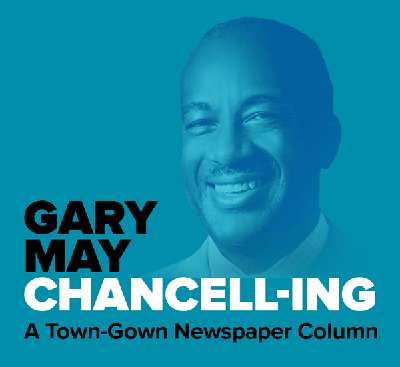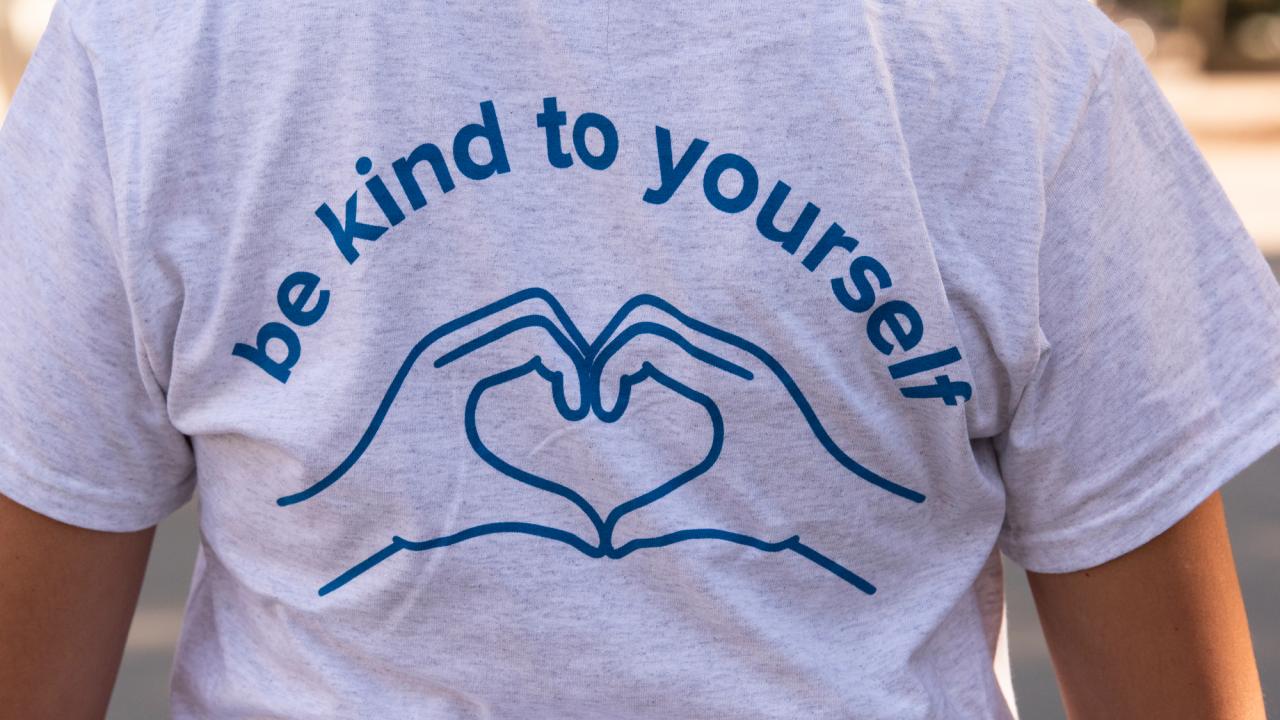Correction: A previous version of this column incorrectly stated the number of new counselors being hired. UC Davis is hiring 10 additional counselors or therapists.
May is Mental Health Awareness Month. So, I planned to begin this column with a nod to the many challenges we have faced in recent years, both as a community and as a nation, and the toll these challenges have taken on our collective mental health. That was before the past week’s horrific crimes, which have deeply impacted our entire community and shaken our sense of safety and well-being.

Mental health resources can help us get through times, like these, of intense stress. At UC Davis, this means not only supporting the needs of students, faculty and staff, but finding solutions to improve the mental health of all.
A new nationwide survey from the National Center on Safe Supportive Learning Environments shows that levels of depression and anxiety have reached an all-time high for students. Even scarier, the survey found that more college students than ever before said they had contemplated suicide.
Over the years, students, faculty and staff have shared their own stories or those of others with me. As a result, early in my tenure here, I created three task forces to address the basic needs of students, including one focused on mental health. At the time, a survey revealed that 64.8% of undergraduates reported feeling “overwhelming anxiety” and 49% were so depressed they had trouble functioning.
Care and resources
We acted swiftly and have made significant progress since then, such as providing the resources to hire an additional 10 counselors or therapists on campus. We also doubled the staff of our nonclinical case managers at the Office of Student Support and Judicial Affairs. This supports students with mental health conditions to obtain appropriate care and resources. We’ve also increased access to care through telehealth services.
Many other members of the UC Davis community are committed to mental health issues as well. They include Police Chief Joe Farrow, who is also president of the board of directors for the National Alliance on Mental Illness’ California branch. Some of his key goals are to encourage more humanistic responses to crisis situations and to destigmatize mental illnesses as a whole.
Further, we introduced a new campuswide campaign last fall called Aggie Mental Health to support student mental health and well-being. It’s the result of a collaboration among students, mental health experts and clinicians. The program utilizes resources from the University of California Office of the President’s Equity in Mental Health Funding Plan.
We will continue to make mental health a campus priority. After all, students can’t do their best work if they’re struggling with fear, anxiety or depression.
On the research front
At the same time, UC Davis researchers are making discoveries that seek to provide mental health benefits to all.
UC Davis was part of a team that developed the first drug treatment specifically approved for postpartum depression. The product, Zulresso (brexanolone), was launched by the startup Sage Theraputics. Michael Rogawski, a UC Davis professor of neurology and pharmacology, conducted its first-in-human clinical studies.
UC Davis also launched the Institute for Psychedelics and Neurotherapeutics recently to make discoveries in providing safe treatments for post-traumatic stress disorder, depression, substance abuse and other disorders.
Our researchers are also breaking ground in the emerging topic of climate anxiety. This includes worries related to the increase of wildfires, melting polar ice caps, ocean acidification and other impacts of a warming planet. These concerns are at the top of mind for many of us. According to a 2020 study from the American Psychiatric Association, 67% of Americans were “somewhat or extremely anxious about the impact of climate change on the planet.” More than half of the people polled were “somewhat or extremely anxious about the impact of climate change on their own mental health.”
Standing together
As we move forward, let’s keep looking out for one another and recognize we are not alone when it comes to addressing mental health.
Let’s also remember that these recent senseless crimes do not represent our community. During the darkest days of COVID-19, we rallied as a community and became a role model for public health. We’ve stood together in the face of hateful acts and senseless tragedies, from candlelight vigils in Central Park to taking action with Hate Free Together. Now, in the most difficult situation imaginable, our community is coming together again.
I know this last week has been incredibly difficult to process. We are grieving collectively and individually. Let’s continue to care for one another and ourselves as we move through the days and weeks ahead.
